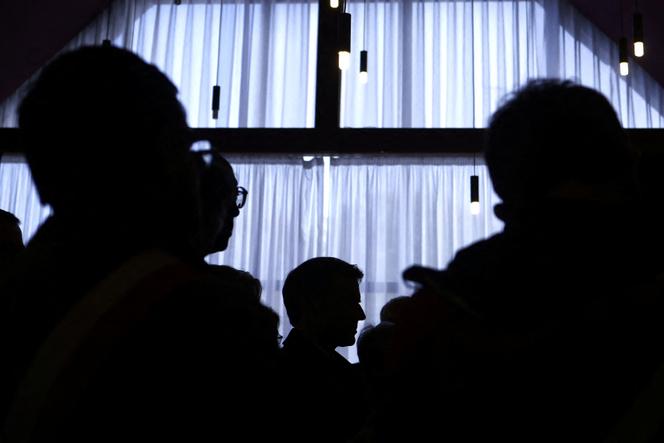


Shortly before the procession set off, as a ray of sunshine tried to break through, a wild rumor ran through the crowd of demonstrators gathered on the Esplanade des Invalides to march against anti-Semitism, on Sunday, November 12. "I hear the president of the Republic is coming," said Emilie, who didn't want to give her last name. But in the end, Emmanuel Macron made no last-minute appearance at the "civic march," which brought together over 100,000 people in Paris, according to the police, and tens of thousands more throughout France.
While the two heads of Parliament, President of the Assemblée Nationale Yaël Braun-Pivet and President of Sénat Gérard Larcher, were there in the front row, shoulder to shoulder with the two former presidents, Nicolas Sarkozy and François Hollande, Macron was "hidden," decried Olivier Marleix, the head of the right-wing Les Républicains group in the Assemblée. "He's the guarantor of national unity, he should have been there," said Marleix as he marched on the Boulevard Saint-Germain. "By not coming, who is he trying to appease? The anti-Semites? You can't defend the values of the Republic by hiding." The head of the Paris region, Valérie Pécresse, also of LR, was less severe: "Above all, he needs to take action," she said. "Walking is good, acting is better."
Macron's absence was pointed out by other demonstrators. The filmmaker Elie Chouraqui, in particular, said that he "doesn't understand why the president isn't here, it's a terrible blunder." Theater producer Jean-Marc Dumontet agreed that "it would have been a powerful symbol" when "the camp of freedoms is under attack." But this friend of Macron said the president's role is "to condemn the attack on October 7, to take care of the hostages, to remind people of the great principles." Not to march.
In truth, Macron has never been more present than on the weekend of November 11, saturating the public space with his words. On Friday evening, the Elysée Palace sent a three-line statement to newsrooms, saying "the president respectfully salutes those who, on Sunday, will march for the Republic, against anti-Semitism and for the release of hostages." The message between the lines was that after hesitating for a long time, Macron had decided not to take part in the march. But he did support it.
The radical left leader Jean-Luc Mélencho, who refused to take part in the event, citing the presence of the Rassemblement National (RN), pretended to see Macron's defection as an agreement with him. "Macron is right. This so-called march against anti-Semitism (...) works like a manipulation. Like him and me, don't be fooled," Mélenchonposted on X (formerly Twitter).
You have 60% of this article left to read. The rest is for subscribers only.
